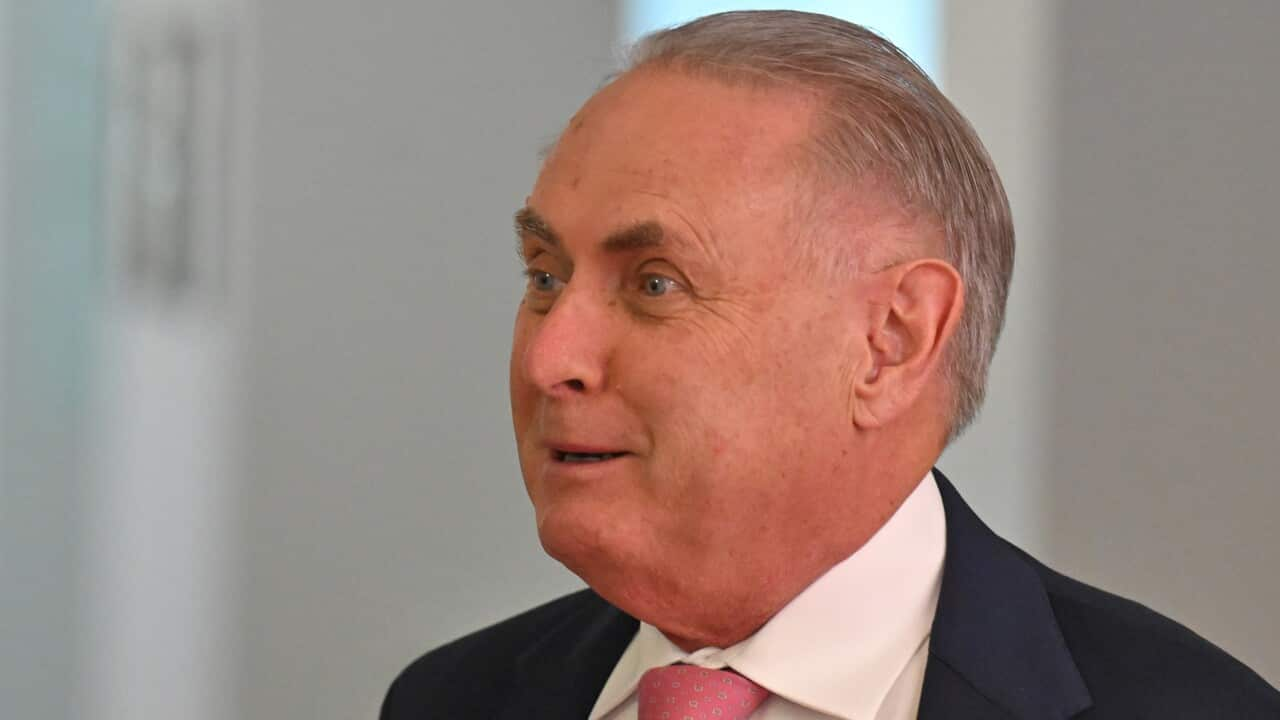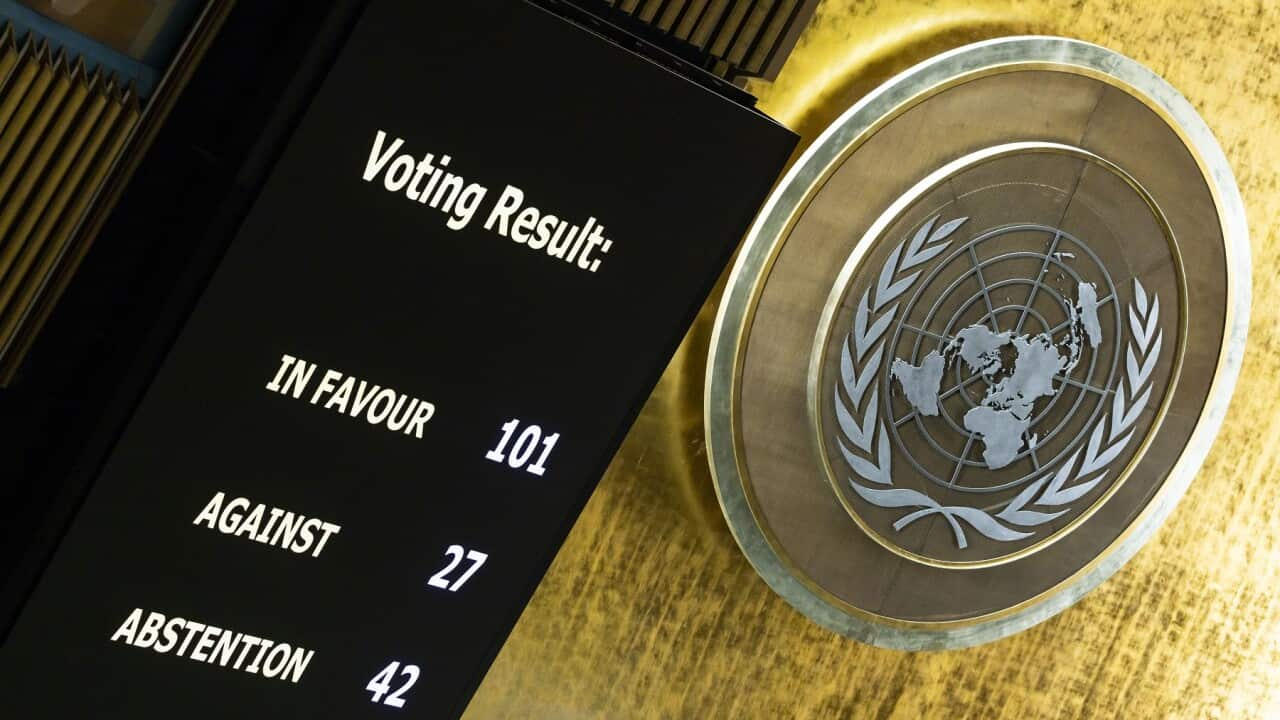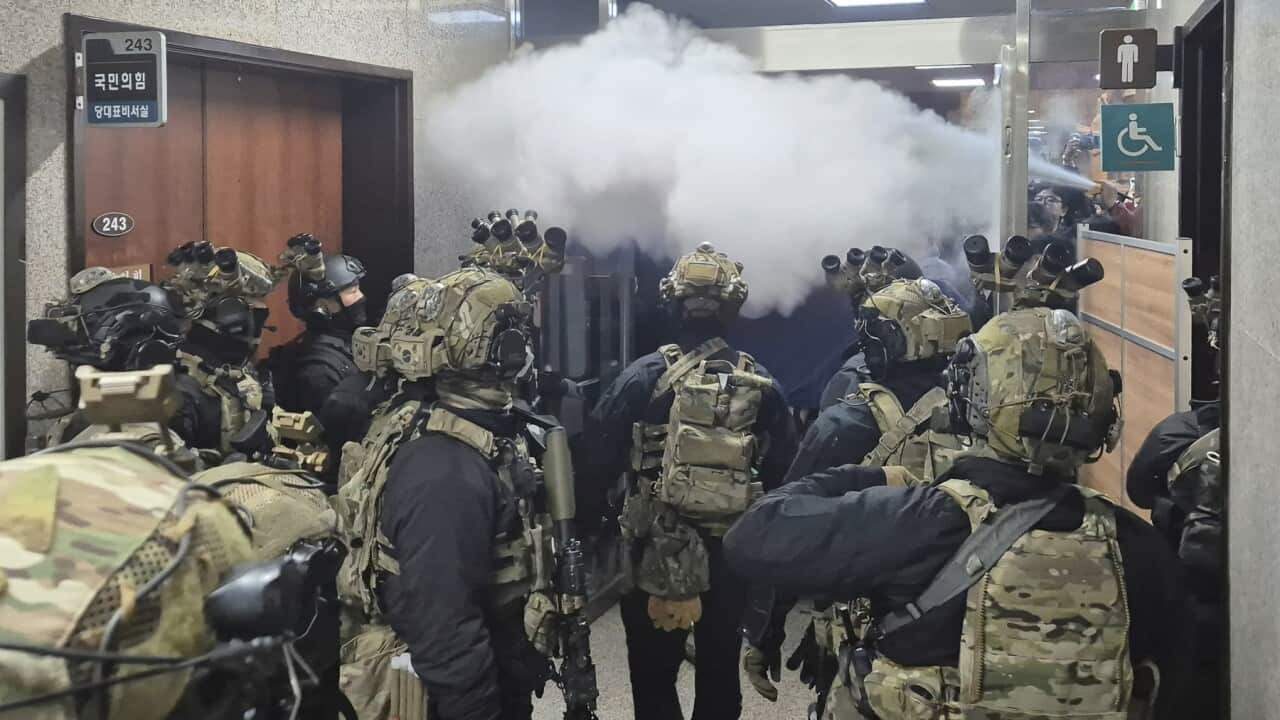TRANSCRIPT
Negotiations with the European Union on a free trade agreement have once again faltered, after initial hopes a deal could be struck by the end of the year.
Australia's Trade Minister Don Farrell has held talks with his European Union counterpart Valdis Dombrovskis on the sidelines of the G-7 trade ministers' meeting in Osaka.
Senator Farrell says a breakdown in negotiations, over concessions Australia could not agree to, is a disappointing result.
“I came to Osaka with a view to signing a free trade agreement with the Europeans, we've been working on this for five years, but at the end of the day, the offer for Australia was not good enough, and we didn't make the progress I had hoped that we would."
A key sticking point with the bloc was the use of geographical indicators, which would require Australian producers to stop using terms like feta, parmesan or prosecco.
President of the National Farmers Federation David Jochinke has told SBS News that producers welcome the trade minister's decision to walk away from the deal.
"Taking away the use of words like feta to describe how we make our cheese and then even to sell the cheese, so for us, when we've got an agreement or a negotiation position where we're losing something and not gaining anything on the other side of the ledger, for us it's a very simple decision not to support it."
Agriculture Minister Murray Watt has told ABC Radio another sticking point was over what he described as new, "commercially meaningful" access to the European market for Australian agriculture.
"The EU has not budged significantly from the offer it put on the table three months ago. You'll remember that about three months ago, negotiations didn't proceed because the EU wasn't offering enough, particularly when it comes to agriculture. And they've come back now with essentially the same offer with a couple of tweaks there."
Senator Farrell says one positive step of the meetings in Osaka is an agreement to keep dialogue open on a future deal.
"We have agreed to continue talking to our European counterparts, and I'm hopeful that if there's some goodwill into the future, that we'll ultimately strike a deal that is in Australia's interests and the European Union's interests."
But Mr Watt says it is unlikely a trade deal can be negotiated before the end of the current term of federal parliament in 2025.
"The EU next year will go into its election cycle. It's always much harder for countries and regions to negotiate these sorts of trade agreements on the eve of elections, so I think it will be quite some time for any Australian government or any E-U leadership to negotiate a deal, and that's a bit of a shame for both Australia and the EU."
Even if a different government ends up negotiating a new agreement with the E-U, there appears to be consensus that this deal was not the right one.
Opposition trade spokesman Kevin Hogan has told the ABC it is unfortunate the trade deal has collapsed, but that proposed geographical indicators and quotas were too restrictive.
"I do agree, the government walked away from this deal, I think they should have. The quotas they were offering on things like beef, sheep meat and sugar, in fact they were lower than what they'd previously offered countries like Canada and New Zealand."
Mr Jochinke says Australian farmers, who already do a lot of trade with the E-U, are more than prepared to hold out for a deal with greater access to European markets.
"We're very aware and conscious that this deal has taken a long time to get where we are, but we're also very conscious that this deal would lock in a whole generation of agriculture into what we would consider sub-obtimal, so if we have to wait another year, if we have to wait multiple years, we are very patient and we are willing to wait."













